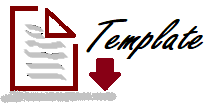DIGITAL SKILLS DAN DIGITAL ETHICS : TANTANGAN DALAM PENGUMPULAN, PENGGUNAAN DAN PENYEBARAN DATA PADA GENERASI Z
(1) Universitas Negeri Semarang
(2) Universitas Negeri Semarang
(3) Universitas Negeri Semarang
(*) Corresponding Author
DOI: https://doi.org/10.56680/slj.v5i1.59461
Abstract
The speed and efficiency of the internet has made it an indispensable part of society. They can connect directly without leaving their location to people around the world through applications such as e-mail, social media or instant messaging applications. Having digital literacy skills means being able to use technology effectively to find and evaluate information, communicate with others, and create content. Without these skills, individuals can find themselves left behind in a world where so much of our personal and professional lives are conducted online. Generation Z is a generation that contributes quite high in the use of the internet in Indonesia. based on data from IDN Research Institute in collaboration with Populix from generation Z who access the internet in the range of 7-10 hours / day reaches 20.9%. This research will focus on the ability of digital skills and digital ethics in generation Z. Digital skills are skills needed to be able to live a healthy and productive digital life, and contribute to building a digital cultural environment. The emergence of hate speech, fake news, bullying, pornogoraphy, and fraud in the digital world makes it necessary to know the initial ability to use digital devices owned by users, especially generation Z so that these negative impacts can be avoided. The method used in this research is quantitative descriptive research method. This research focuses on students who represent generation Z. The factors analysed in this research include their digital skills and digital ethics. The factors analysed in this study include their digital skills and digital ethics. The data collection technique was distributed through a questionnaire. The results were then presented in the form of descriptive statistics to determine the ability of digital skills and digital ethics of Generation Z. The results of the study discuss several indicators such as the duration of accessing the internet, the use of the internet for communication, for social media, searching for information, the ability of digital skills and digital ethics including the ability to connect devices to the internet network, the ability to download applications and files, the ability to search and access data, information and digital content, the ability to check the correctness of digital information, the ability to compare information, the ability to save data, information and content, the response to share screenshots to social media, Ethics when seeing negative comments on personal posts.
Keywords
Full Text:
PDFReferences
Abdillah, F., & Handoko Putro, G. M. (2022). Digital Ethics: The Use of Social Media in Gen Z Glasses. Jurnal Komunikasi, 14(1), 158. https://doi.org/10.24912/jk.v14i1.13525
Andika, M., Masithoh, S., Kholiq, Y. N., Nisa, D. A., & Rohmah, N. (2021). Efektivitas Marketplace Shopee sebagai Marketplace Belanja Online yang Paling Disukai Mahasiswa. Journal of Education and Technology, 1(1), 24–29. http://jurnalilmiah.org/journal/index.php/jet
Badri, M. (2022). Pribumi Digital Moderat: Profil Kecakapan Komunikasi Digital Generasi Z. Jurnal Riset Komunikasi, 5(2), 291–303.
Eka Sila, G., & Mochamad Taufik, C. (2023). Literasi Digital Untuk Melindungi Masyarakat Dari Kejahatan Siber. KOMVERSAL, 5(1), 112–123. https://doi.org/10.38204/komversal.v5i1.1225
Erlianti, G. (2019). The Urgency of Digital Literacy for Generation Z: A Case Study of SMPN 4 Palembayan, Kabupaten Agam. Journal of Information and Library Studies N-JILS, 2(2).
Firamadhina, F. I. R., & Krisnani, H. (2021). PERILAKU GENERASI Z TERHADAP PENGGUNAAN MEDIA SOSIAL TIKTOK: TikTok Sebagai Media Edukasi dan Aktivisme. Share : Social Work Journal, 10(2), 199. https://doi.org/10.24198/share.v10i2.31443
Jauharotul Amalia, R. (2022). ANALISIS PERILAKU KONSUMTIF DAN DAYA BELI KONSUMEN TERHADAP BELANJA ONLINE DI MASA PANDEMI COVID-19. In Jurnal Ilmu Ekonomi dan Bisnis Islam-JIEBI (Vol. 4, Issue 1).
Kementerian Komunikasi dan Informatika. (2021, April 26). Sejak 2018, Kominfo Tangani 3.640 Ujaran Kebencian Berbasis SARA di Ruang Digital.
Magan, R. P., Martin, & Anggara, V. (2022). Etika Bermedia Sosial Bagi Generasi Z. Praxis: Jurnal Filsafat Terapan, 1(1), 1–25.
Manoppo, V. A., Lumenta, A. S. M., & Karouw, S. D. D. (2020). Analisa Malware Menggunakan Metode Dynamic Analysis Pada Jaringan Universitas Sam Ratulangi. Jurnal Teknik Elektro Dan Komputer, 9(3), 181–188.
Mariana, E., Wardany, K., & Nahdlatul Ulama Lampung, U. (2021). Pemanfaatan Internet Sebagai Media Pembelajaran Daring Bagi Siswa SD di Tempuran Trimurjo (Vol. 2, Issue 2). https://madaniya.pustaka.my.id/journals/contents/article/view/70
Mazrieva, E. (2021, February 26). Indeks Keberadaban Digital: Indonesia Terburuk se-Asia Tenggara. VOA Indonesia.
Naufal, H. A. (2021). LITERASI DIGITAL. Perspektif, 1(2), 195–202. https://doi.org/10.53947/perspekt.v1i2.32
Novianta, E., Andani, A., . F., & Pane, S. G. (2024). Financial Technology Dan Literasi Keuangan Terhadap Generasi Z. Jurnal Ekonomika Dan Bisnis (JEBS), 4(1), 1–8. https://doi.org/10.47233/jebs.v4i1.1423
Pratikto, R. G., & Kristanty, S. (2018). LITERASI MEDIA DIGITAL GENERASI Z (STUDI KASUS PADA REMAJA SOCIAL NETWORKING ADDICTION DI JAKARTA). Communication, 9(2), 1–28.
Rusnawati, R. D., & Hariyati, Rr. T. S. (2022). IMPLEMENTASI INTERNET OF THINGS PADA LAYANAN KESEHATAN (LITERATURE REVIEW). 8.
Syah, R., Darmawan, D., Purnawan, A., Ekonomi, F., Bisnis, I., Asmi, M., Masyarakat, P., Ilmu Pendidikan, F., & Negeri Jakarta, U. (2019). ANALISIS FAKTOR YANG MEMPENGARUHI KEMAMPUAN LITERASI DIGITAL. Jurnal AKRAB, X(2), 60–69.
Takariani, C. S. D. (2011). Studi Eksplanatori Survei Tentang Pengaruh Chatting Melalui Facebook Terhadap Komunikasi Tatap Muka Remaja Dalam Keluarga di Provinsi Jawa Barat dan Banten. Jurnal Penelitian Komunikasi, 14(2), 127–143.
Utomo, W. P., & Heriyanto, D. (2022). Indonesia Gen Z Report 2022.
Zis, S. F., Effendi, N., & Roem, E. R. (2021). Perubahan Perilaku Komunikasi Generasi Milenial dan Generasi Z di Era Digital. Satwika : Kajian Ilmu Budaya Dan Perubahan Sosial, 5(1), 69–87. https://doi.org/10.22219/satwika.v5i1.15550
Article Metrics
Abstract view : 34 times | PDF view : 0 timesRefbacks
- There are currently no refbacks.
Copyright (c) 2024 Fredy Hermanto, lukki Lukitawati

This work is licensed under a Creative Commons Attribution-NonCommercial 4.0 International License.














